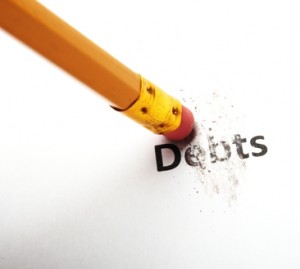 The financial crisis was a wake-up call for those who needed to reign in their spending and limit the amount of debt they carried. If you want to end the year with less debt than you started with, then taking out a consolidation loan could be the answer.
The financial crisis was a wake-up call for those who needed to reign in their spending and limit the amount of debt they carried. If you want to end the year with less debt than you started with, then taking out a consolidation loan could be the answer.
What is a Consolidation Loan?
Basically these loans cover the existing balances on all your other unsecured debts, leaving you with one monthly repayment. They can cover anything from credit cards and store cards to personal loans. As the loan is secured on your property, some lenders can offer poor credit history loans. However, if you miss repayments, you could put your home at risk of repossession.
Is a Consolidation Loan Good for Me?
Taking out one of these loans is a useful way of organizing your debts before they get out of control. Having a number of small loans with varying repayment dates through the month, it’s easy to lose track of what’s due when. With a consolidation loan you only have to pay one creditor, making it easier for you to budget and plan your finances.
Debt consolidation loans are beneficial for those consumers who spend a large percentage of their income paying off debts. This could mean that at the end of the month they’re left with very little disposable income. However, consolidation loans are spread over a longer period of time and sometimes attract lower rates as they’re secured on your property. This means that you could end up paying less each month than before, leaving you with more disposable income to spend.
However, you have to be extremely disciplined if you’re going to use this process to get yourself out of debt. Once you’ve used the loan to pay off your existing credit cards, etc., there is the temptation to reuse these and build up additional debt. In order to avoid this situation, when you pay off the balances you should immediately close the accounts and cut up the cards.
When Consolidation Loans Don’t Work
The main thing you need to ensure when researching these loans is that you’d be paying less per month than you currently are. If the repayments are the same or higher, then a consolidation loan wouldn’t be of use to you.
It can be tempting to opt for one of these loans, particularly if your credit record means you need poor credit history loans. However, just because your repayments would be lower, doesn’t necessarily mean they’re right for you. Your loan will be spread over a number of years, up to 25 in some cases (but usually around six). So you could end up paying substantially more when you take into account the additional interest payments.
You also need to be aware of any early repayment charges on the loans you intend to clear. These can be significant, which could outweigh any savings you make through the consolidation loan.
When you’re working out your budget for the new loan you need to ensure that you can comfortably afford the repayments each month. There’s no point trying to pay off your debts if you end up losing your house because you miss some payments.
If you’re looking for poor credit history loans and a way of restructuring your debts, then a consolidation loan could work for you. It can help you organize your debt and finances and repay your debts in a manageable way.

I have a few friends who are using consolidation loans and it does make debt easier to manage and save a lot of headaches.